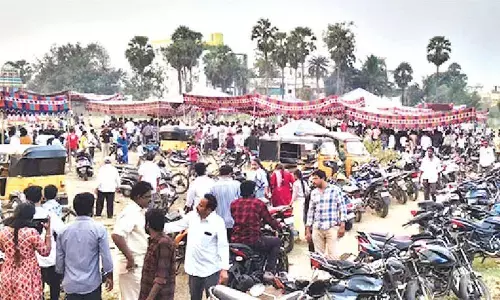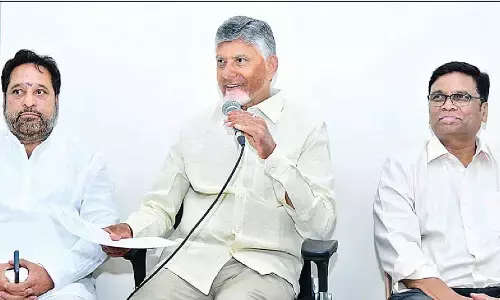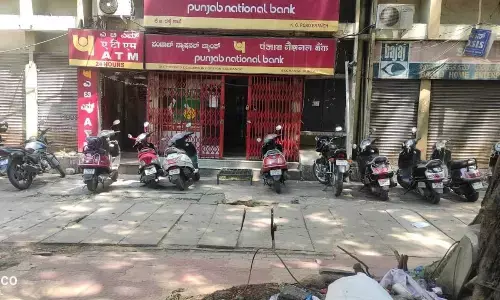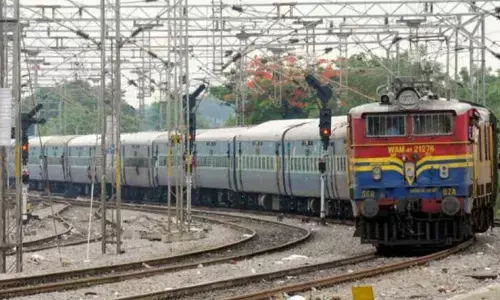The Bills passed in 2019 for women's safety
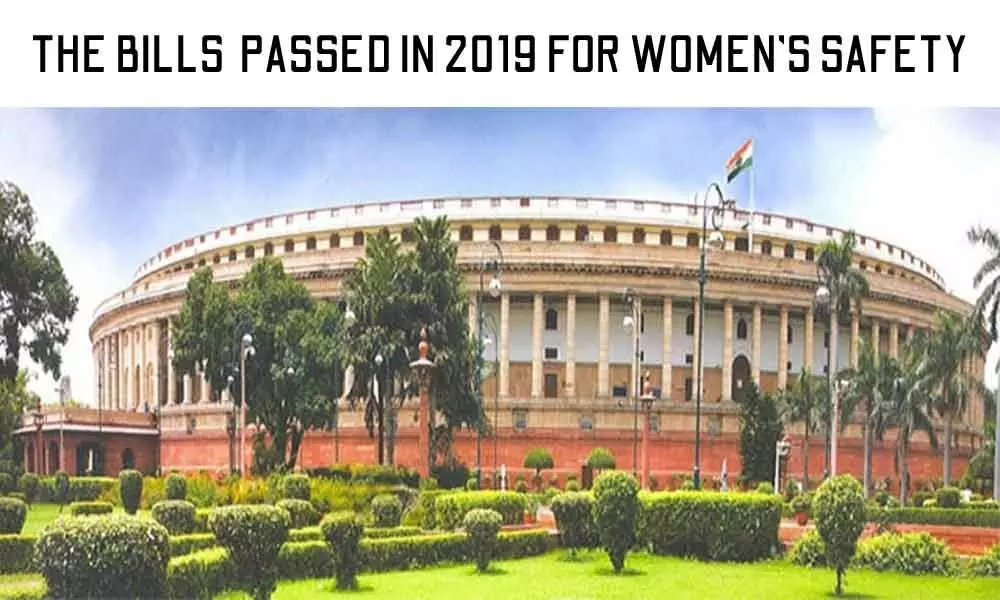
Here is the current list of Bills which have been passed for women in the Parliament till now
The Protection of Children from Sexual Offences (Amendment) Bill, 2019
The Protection of Children from Sexual Offences (Amendment) Bill, 2019 was introduced in Rajya Sabha by Minister of Women and Child Development Smriti Zubin Irani on July 18, 2019.
The Bill amends the Protection of Children from Sexual Offences Act, 2012. The Act seeks to protect children from offences such as sexual assault, sexual harassment, and pornography.Under the Act, a person commits "penetrative sexual assault" if he: (i) penetrates his penis into the vagina, mouth, urethra or anus of a child, or (ii) makes a child do the same, or (iii) inserts any other object into the child's body, or (iv) applies his mouth to a child's body parts.
The punishment for such offence was imprisonment between seven years to life, and a fine. The Bill increases the minimum punishment from seven years to ten years.
It further adds that if a person commits penetrative sexual assault on a child below the age of 16 years, he will be punishable with imprisonment between 20 years to life, with a fine.
The Protection of Human Rights (Amendment) Bill, 2019
The Protection of Human Rights (Amendment) Bill, 2019 was introduced in Lok Sabha by Minister of Home Affairs Amit Shah on July 8, 2019. The Bill amends the Protection of Human Rights Act, 1993.
The Act provides for a National Human Rights Commission (NHRC), State Human Rights Commissions (SHRC), as well as Human Rights Courts.The Act provides for two persons having knowledge of human rights to be appointed as members of the NHRC.
The Bill amends this to allow three members to be appointed, of which at least one will be a woman. Under the Act, chairpersons of various commissions such as the National Commission for Scheduled Castes, National Commission for Scheduled Tribes, and National Commission for Women are members of the NHRC.
The Bill provides for including the chairpersons of the National Commission for Backward Classes, the National Commission for the Protection of Child Rights, and the Chief Commissioner for Persons with Disabilities as members of the NHRC.
The Muslim Women (Protection of Rights on Marriage) Bill, 2019
The Muslim Women (Protection of Rights on Marriage) Bill, 2019 was introduced in Lok Sabha by Minister of Law and Justice Ravi Shankar Prasad on June 21, 2019.
It replaces an Ordinance promulgated on February 21, 2019. The Bill provides for declaration of triple talaq either written or in electronic form to be as well as illegal. The talaq dealt by this legislative initiative is basically talaq-e-biddat in which word "talaq" is uttered thrice by a Muslim man that would result in irrevocable and instantaneous divorce.
The law makes it a cognizable offence that is duly punishable with three years of imprisonment and fine. The law also provides an opportunity to compound the offence on request of woman who is subjected to triple talaq in front of the Magistrate.
The Transgender Persons (Protection of Rights) Bill, 2019
The Transgender Persons (Protection of Rights) Bill, 2019 was introduced in Lok Sabha on July 19, 2019 by Minister for Social Justice and Empowerment Thaawarchand Gehlot. The Bill defines a transgender person as one whose gender does not match the gender assigned at birth.
It includes trans-men and trans-women, persons with intersex variations, genderqueers, and persons with socio-cultural identities, such as kinnar and hijra.
Intersex variations is defined to mean a person who at birth shows variation in his or her primary sexual characteristics, external genitalia, chromosomes, or hormones from the normative standard of male or female body.
Andhra Pradesh Disha Bill 2019 (Andhra Pradesh Criminal Law Amendment Act 2019)
Andhra Pradesh Assembly on December 13, 2019 passed the Andhra Pradesh Disha Bill, 2019 (Andhra Pradesh Criminal Law Amendment Act 2019) to award death sentences to convicts in rape cases within 21 days.
The AP Criminal Law (Amendment) Act 2019 or Andhra Pradesh Disha Act seeks to amend the Code of Criminal Procedure for 'heinous offences of rape' so that in the presence of 'adequate conclusive evidence', the investigation is completed within seven working days.
The new law also says trial must be completed within 14 working days, thus reducing the total judgment time to 21 working days.









